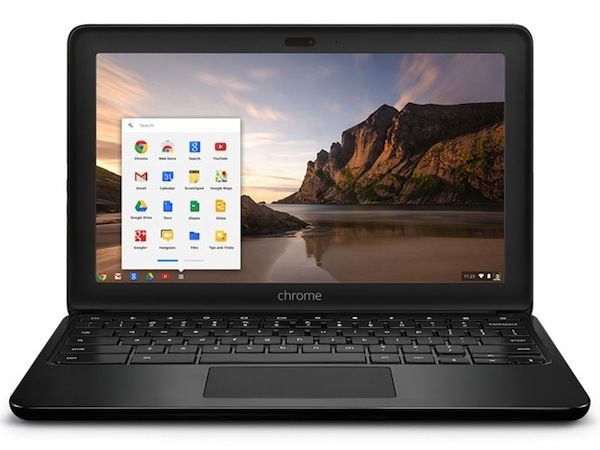
By Hannah Katz and Carly Simonian
Ever since Batavia High School students receive Chromebooks from the school for the 2014-2015 school year and beyond, there has been a debate about what websites should and should not be blocked. Some students argue that sites should not be blocked because it disrupts their studying and limits them from having all possible online resources. Others, however, think that blocking certain websites from Chromebooks keeps students safe and protects them while simultaneously keeping them on task. Here, two writers for The Spectator will provide their opposing insight on the issue.
Hannah Katz: I don’t think the administration should keep such strict bans on student’s Chromebooks. In the long run, it does more harm than help. If students aren’t using their time effectively and are getting off task on these unblocked websites, that is their prerogative. I know for me, there have been times where I have been doing assignments and there was a website that looked like it had beneficial information, or a Youtube video that would clarify my understanding, and it was blocked by school administration. If students don’t have access to all sources of information, even those the school deems “useless,” or “distracting,” how are we expected to succeed in our studies?
For a majority of students, these Chromebooks are not only their school computer, but a device to use at home, as well. Since activities and games or other social media is blocked, not just on the school wifi, but on the system of the Chromebook, student enjoyment is limited outside of school. For a few students even, their Chromebook is their only chance to connect to the internet – they may not be able or allowed to use the internet at their homes. This means that their time at school, at lunch, or after their classwork is done is their only chance to have an online presence and we should not take that away.
I’m not arguing to lift the ban completely. The school should keep bans on some inappropriate sites- those that have inappropriate images or that could prove dangerous to students, but students would use this lifting of strict guidelines to their advantage. If students abuse the privileges during class, then it will reflect on them as a student and they should receive the rightful consequences. But certain students taking advantages of these privileges should not take those opportunities of internet freedom from other students. The school should also use these unrestricted chromebooks to teach students about having a positive social media presence and about digital footprints, they should not just take the chance for these things away altogether.
The Child Internet Protection Act, the laws enacted that all schools are required to follow, includes rules about “The safety and security of minors when using electronic mail, chat rooms and other forms of direct electronic communications, unauthorized access, including so-called “hacking,” and other unlawful activities by minors online, Unauthorized disclosure, use, and dissemination of personal information regarding minors, and Measures restricting minors’ access to materials harmful to them” (https://www.fcc.gov/consumers/guides/childrens-internet-protection-act). Nowhere in these laws does it say that it is required to block educational game sites, informative videos, or sources that may help student succeed in their studies or just to relax in their free time.
Carly Simonian: Between all the high school drama, the school work, and everything else in between, there has recently been buzz about one specific topic: Why would the school ban us from using Youtube, Netflix, Facebook, and other social media websites during school hours? Why is that fair when we may need to use them for “school purposes”? Being a student at Batavia High School myself, I can understand how all of these students feel, and why they are upset. “When I’m sitting in class bored out of mind, and all of my favorite websites are blocked, what am I supposed to do?” said Elena Simonian, freshman at Batavia. As much as I understand this, school is not the place to be watching our favorite TV series or surfing the internet.
When we have free time in class after we are done with our work, we should be continuing to do other homework, or collaborating with classmates, rather than having our eyes glued to a screen. If the school left these sites unblocked during school hours, they never know what kids could be looking at online. According to guardchild.com, 70 percent of children 7 to 18 years old have accidentally encountered online pornography, or other inappropriate material through a web search while doing homework. Kids could also be using these sites to bully other students, possibly getting parents and staff involved. If we need to search a video or topic that is blocked for school purposes, we could always use a smartphone or home computer to do so. The school can’t afford to just sit and wait for something bad to happen over the internet before they block these sites. If they just take action now, it’s one less thing they have to worry about with the students.
It is a shame that certain student’s abused our freedom of the internet when we had it, making us all suffer, but because of these reasons, teenagers can’t be trusted with open internet access during school hours. There are many more negatives than positives when it comes to these websites, which is why they should stay blocked on our school computers.